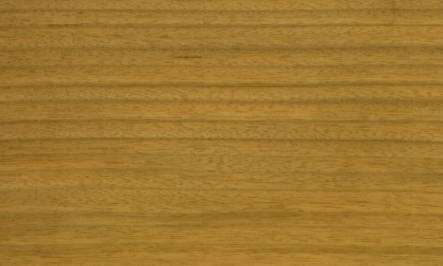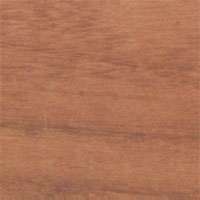  
Afrormosia (Pericopsis elata)
Family: Leguminosae
Common names: Afrormosia, Anyeran, Asamela, Assamela, Assemela, Awawai, Ayin, Baracara, Benin satinwood, Bohala, Bohalala, Bonsamdua, Devils tree, Egbi, Ejen, Golden afrormosia, Jatobahy do igapo, Kokriki, Kokrodua, Mekoe, Mohole, Obang, Ole, Olel Pardo, Peonio, Redbark, Satinwood, Tento, Wahala, Yellow satinwood
Distributed in: Cameroon, Congo, Ghana, Ivory Coast, Nigeria, Zaire (Africa)
Distribution overview: Afrormorsia occurs in the semi-deciduous forests in West and Central Africa, and is found mostly in the Ivory Coast, Ghana, Cameroon, and Congo.
Common uses: Agricultural implements, Boat building (general), Boat building, Boat building: decking, Boat building: framing, Boxes and crates, Cabinetmaking, Canoes, Carvings, Chairs, Chests, Concealed parts (Furniture), Decks, Decorative veneer, Desks, Dining-room furniture, Domestic flooring, Drawer sides, Excelsior, Figured veneer, Fine furniture, Floor lamps, Flooring, Furniture , Furniture components, Furniture squares or stock, Furniture, Hatracks, Heavy construction, Interior construction, Joinery (external): ground contact, Joinery, Kitchen cabinets, Lifeboats, Light construction, Living-room suites, Millwork, Mine timbers, Musical instruments, Office furniture, Parquet flooring, Particleboard, Plywood, Poles, Posts, Radio - stereo - TV cabinets, Railroad ties, Rustic furniture, Shipbuilding, Sporting Goods, Stairrails, Stairworks, Stools, Stringers, Sub-flooring, Tables , Tool handles, Turnery, Utility furniture, Vehicle parts, Veneer, Veneer: decorative, Wardrobes
Product sources: The ITTO reports that timber from this species is produced regularly but in limited quantities. Export of the material is regular.Adequate quantities of Afrormosia in the form of logs, flitches, and lumber are available at prices that are lower than teak and other comparable exotic hardwoods.
Environment profile: Endangered
Tree size: Trunk diameter is 200-250 cm
Colors: the heart isYellow, Yellow to golden-yellow to orangeand the sapwoodWhite to yellow, Yellow.The grain isStriped figure, the textureMediumand the lusterPronounced
Natural durability: Susceptible to insect attack, Very durable
Odor: No specific smell or taste
LightInduced Color Change: None
Kiln Schedules: UK=J US=T10D5S/T8D4S Fr=4
Kiln Drying Rate: Slow (18-28 days for boards < 32 mm, to 52-84 days for boards >= 63 mm)
Drying Defects: Internal Honeycombing Possible, Slight twist/warp
Ease of Drying: Thick Stock Requires Care
Tree Identification: Bole/stem form is straight
Comments: General finishing qualities are rated as good
Blunting Effect: Moderate
Boring: Tool exits should be supported to prevent break out
Carving: Fairly Easy to Very Easy
Cutting Resistance: Saws well
Gluing: Glues well
Mortising: Support material during mortising to prevent break out.
Moulding: Good moulding properties
Movement in Service: Good moulding properties
Nailing: Holds nails well, Pre-boring recommended
Planing: Responds well to hand and machine tools
Resistance to Impregnation: Softwood is fairly permeable
Resistance to Splitting: Satisfactory
Response to hand tools: Easy to machine
Routing recessing: Yields clean surfaces
Sanding: Yields a smooth surface
Veneering qualities: Veneers easily, Veneers moderately easy
Steam bending: Poor to Very Poor Results
Screwing: Good screw holding properties
; Turning: Turns well to yield smooth surfaces
Polishing: Very Good to Excellent; Staining: Satisfactory staining properties; Varnishing: Fairly Easy to Very Easy;
- Numerical data Metric
- Numerical data English
- Strength properties
- References
 |
 |
 |
 |
| Item |
Green |
Dry |
Metric |
| Specific Gravity |
0,54 |
0,63 |
|
| Density |
|
737 |
kg/m3 |
| Bending Strength |
995 |
1357 |
kg/cm2 |
| Crushing Strength |
516 |
695 |
kg/cm2 |
| Hardness |
|
754 |
kg |
| Impact Strength |
131 |
114 |
cm |
| Shearing Strength |
|
152 |
kg/cm2 |
| Stiffness |
120 |
129 |
1000 kg/cm2 |
| Tangential Shrinkage |
6 |
|
% |
| Radial Shrinkage |
3 |
|
% |
| Weight |
721 |
689 |
kg/m3 |
| Maximum Load |
1,12 |
1,19 |
cm-kg/cm3 |
| Toughness |
|
|
cm-kg |
| Static Bending |
|
|
kg/cm2 |
|
 |  |  |  | | Item | Green | Dry | English | | Bending Strength | 14152 | 19310 | psi | | Density | | 46 | lbs/ft3 | | Hardness | | 1663 | lbs | | Impact Strength | 52 | 45 | inches | | Maximum Crushing Strength | 7342 | 9890 | psi | | Shearing Strength | | 2167 | psi | | Stiffness | 1719 | 1838 | 1000 psi | | Work to Maximum Load | 16 | 17 | inch-lbs/in3 | | Specific Gravity | 0.54 | 0.63 | | | Weight | 45 | 43 | lbs/ft3 | | Radial Shrinkage | 3 | | % | | Tangential Shrinkage | 6 | | % | | Volumetric Shrinkage | 10 | | % | |
Max. crushing strength = high 0
Mor/Bending strength = high 0
Modulus of Elasticity (stiffness) = medium 0
Hardness (side grain) = medium
Medium
Density (dry weight) = 38-45 lbs/cu. ft.
Density (dry weight) = 38-45 lbs/cu. ft.
Shrinkage, Radial = small
Very small
Small
46-52 lbs/cu. ft.
46-52 lbs/cu. ft.
Very small
Shrinkage, Volumetric = moderate
Shrinkage, Tangential = moderate
Moderate
Medium
Low
Fairly large
53-60 lbs/cu. ft.
53-60 lbs/cu. ft.
Very low
Very high
Very high
Toughness-Hammer drop (Impact Strength) = medium
Small
Shearing strength (parallel to grain) = high
Max. crushing strength = high
Low
Low
Large
Large
High
High
Hard
Fairly large
Ending strength in the air-dry condition (about 12 percent moisture content) is very high. Compression strength parallel to grain, or maximum crushing strength, is very high - higher than in Teak or Hard maple. It is fairly hard, resisting wear, denting, and marring fairly well. The weight is high. The wood has high density.
Work to Maximum Load
Banks, C.H., Schoeman, J.P., Otto, K.P.,1977,The Mechanical Properties of Timbers with particular reference to South,Africa,South African Forestry Research Institute Bulletin,(Ed.,Schoeman, J.P. 1973 & Otto K.P. 1976,No.48Bois et Forets des Tropiques,1956,Asamela (Afrormosia elata,Bios et Forets des Tropiques,No.50,pp17-20Bolza, E., Keating, W.G.,1972,African Timbers - the Properties, Uses and Characteristics of 700 Species,C.S.I.R.O. Div. of Building ResearchBolza, E.,1976,Timber and Health,Div. Building Res. C.S.I.R.O. AustraliaBrown, W.H.,1969,Properties and uses of Tropical hardwoods in the United Kingdom. Part 1,Nonstructural properties and uses.,Conference on Tropical hardwoods SC-5/TN-5, Syracuse UniversityBrown, W.H.,1978,Timbers of the World No.1 Africa,TRADA, Red Booklet SeriesChudnoff, M.,1984,Tropical Timbers of the World,U.S.A. Department of Agriculture, Forest Service, Forest Products,Laboratory, Madison.Cividini, R.,1967,Studio delle Caratteristiche dei Legni per Pavimenti e Loro Valutazione,Consiglio Nazionale delle Ricerche Rome Contr.Sc-Pract Mig.Cons ed Ut.del,Legno 8(13)Edlin, H.L. 1969. What Wood is That?: A Manual of Wood Identification.A Studio Book, The Viking Press, New York.Erfurth, T., Rusche, H.,1976,The Marketing of Tropical Wood A. Wood Species from African Moist Forests,F.A.O. Forestry DepartmentFarmer, R.H.,1972,Handbook of Hardwoods,HMSOForest Products Research Laboratory, U.K.,1955,Kiln-Drying Schedules,Forest Products Research Laboratory, Princes Risborough, Department of,Science and Industrial Research, Building Research Establishment Leaflet,No.42Forests Products Research Laboratory, U.K.,1956,A Handbook of Hardwoods,Forest Products Research Laboratory, Princes Risborough, Department of,Science and Industrial Research, Building Research EstablishmentFouarge, J.,1950,Appropriation de Bois Congolais aux Besoins de la Metropole,I.N.E.A.C. Belgium Serie Technique,No.38Fouarge, J.,1953,Bois du Congo,I.N.E.A.C.France - C.T.F.T.,1966,Bois Tropicaux,C.T.F.T. Publ.,12Ghana - Timber Marketing Board,1969,Ghana Hardwoods,Timber Marketing BoardHMSO.1972.Handbook of Hardwoods.2nd Edition.Revised by R.H. Farmer.Department of the Environment, Building Research Establishment, Princes Risborough Laboratory, Princes Risborough, Aylesbury, Buckinghamshire.Howland, P.,1979,Pericopsis elata (Afrormosia,C.F.I. University of Oxford, Occasional Paper,No.9Hughes, J.F.,1971,The Principal Timber Trees of Cameroon,Unpublished dataI.U.F.R.O.,1973,Veneer Species of the World,Assembled at F.P.L. Madison on behalf of I.U.F.R.O. Working Party on,Slicing and Veneer CuttingInto the Woods.1993.Personal Communication.Irvine, F.R.,1961,Woody Plants of Ghana,O.U.P. LondonITTO.1986.Tropical Timber Atlas, Volume 1 - Africa.International Tropical Timber Organization (ITTO) and Centre Technique Forestier Tropical (CTFT, 45bis, Avenue de la Belle Gabrielle, Nogent-sur-Marne Cedex, France.Jackson, A. and D. Day.1991.Good Wood Handbook - The Woodworker's Guide to Identifying, Selecting and Using the Right Wood.Betterway Publications, Cincinnati, Ohio.Kinloch, D., Miller, W.A.,1949,Gold Coast Timbers,Govt. Printer Gold CoastKline, M. 1984. Afrormosia elata - Afrormosia. In A Guide to Useful Woods of the World. Flynn Jr., J.H., Editor. King Philip Publishing Co., Portland, Maine. 1994. Page 25-26.Kukachka, B.F.,1960,Kokrodua (Afrormosia elata,U.S.A. Department of Agriculture, Forest Products Laboratory, Madison,,Foreign Wood Series,No.1978Kukachka, B.F.,1962,Characters of Some Imported Woods,U.S.A. Department of Agriculture, Forest Products Laboratory, Madison,,Foreign Wood Series,No.2242Kukachka, B.F.,1970,Properties of Imported Tropical Woods,Forest Research Paper FPL 125Lavers, G. M.1966.The Strength Properties of Timbers.Forest Products Research Bulletin, No. 50.Ministry of Technology, Her Majesty's Stationery Office, London.Lavers, G.M.,1983,The Strength Properties of Timber (3rd ed. revised Moore G.L.,Forest Products Research Laboratory, Princes Risborough, Building Research,Establishment Report (formerly Bulletin No.50)Lincoln, W.A. 1986. World Woods in Color. Linden Publishing Co. Inc., Fresno, California.Oliver, A.C.,1974,Timber for Marine and Freshwater Construction,TRADA, LondonOrganisation for European Economic Co-operation,1951,African Tropical Timber (Nomenclature, Description,OEECPatterson, D.,1988,Commercial Timbers of the World, 5th Edition,Gower Technical PressPieters, A.,1977,Essences Forestieres du Zaire,R.U.G. Gent BelguimRendle, B.J.,1969,World Timbers (3 Vols.,Ernest Benn Ltd. LondonSallenave, P.,1971,Proprietes Physiques et Mecaniques des Bois Tropicaux (Deuxieme,Supplement,C.T.F.T.South African Lumber Millers Assoc.,1969,Notes on some Commercially Available Hardwoods,S.A.L.M.A. Timber Info. Centre Timber Technical Guide,No.1Takahashi, A.,1978,Compilation of Data on the Mechanical Properties of Foreign Woods (Part,III) Africa,Shimane University, Japan, Research Report on Foreign Wood No. 7Thomas, A.V.,1964,Timbers Used in the Boat Building Industry A Survey,Department of Scientific and Industrial Research Forest Products Research,LaboratoryTimber Development Association Ltd.,1955,World Timbers (3 Vols.,Timber Development Association Ltd.Titmuss, F.H.,1965,Commercial Timbers of the World,Technical Press Ltd., London, 3rd editionU.S.D.A. Forest Service,1974,Wood Handbook,U.S.A. Department of Agriculture, Forest Service Handbook,72Wood, B., Calnan, D.,1976,Toxic Woods,British Journal of Dermat 94 Suppl. 13
|










